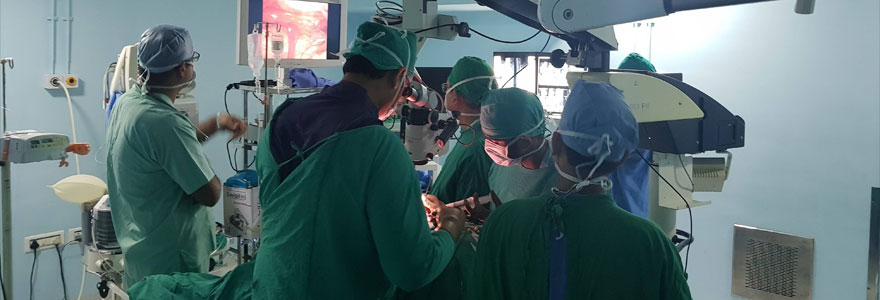
Dr. Chandranath Tiwari
MBBS, MS, MChEndoscopic Brain & Spine Surgery

Endoscopic brain and spine surgery is a minimally invasive surgical approach that utilizes an endoscope—a thin, flexible tube with a light and a camera at its tip—to visualize and treat conditions within the brain and spine. This technique allows surgeons to access and address various neurological issues through small incisions, reducing the need for extensive tissue disruption compared to traditional open surgeries
Here are some key aspects of endoscopic brain and spine surgery:
- Visualization: The endoscope provides high-resolution, magnified images of the surgical area. This enables surgeons to navigate through complex anatomical structures with precision.
- Small Incisions: Endoscopic procedures typically involve smaller incisions compared to traditional open surgeries. These small openings help minimize trauma to surrounding tissues, reduce scarring, and contribute to faster recovery times.
- Less Tissue Disruption: The minimally invasive nature of endoscopic surgery results in less disruption of normal tissues, reducing the risk of complications and accelerating the healing process.
- Quicker Recovery: Patients undergoing endoscopic brain and spine surgery often experience shorter hospital stays and quicker recovery times compared to traditional open surgeries.
- Reduced Pain and Scarring: Smaller incisions generally lead to reduced postoperative pain and scarring, contributing to improved patient satisfaction.
- Navigation Systems: In some cases, navigation systems are used in conjunction with endoscopy to provide real-time imaging and enhance the precision of the procedure.
